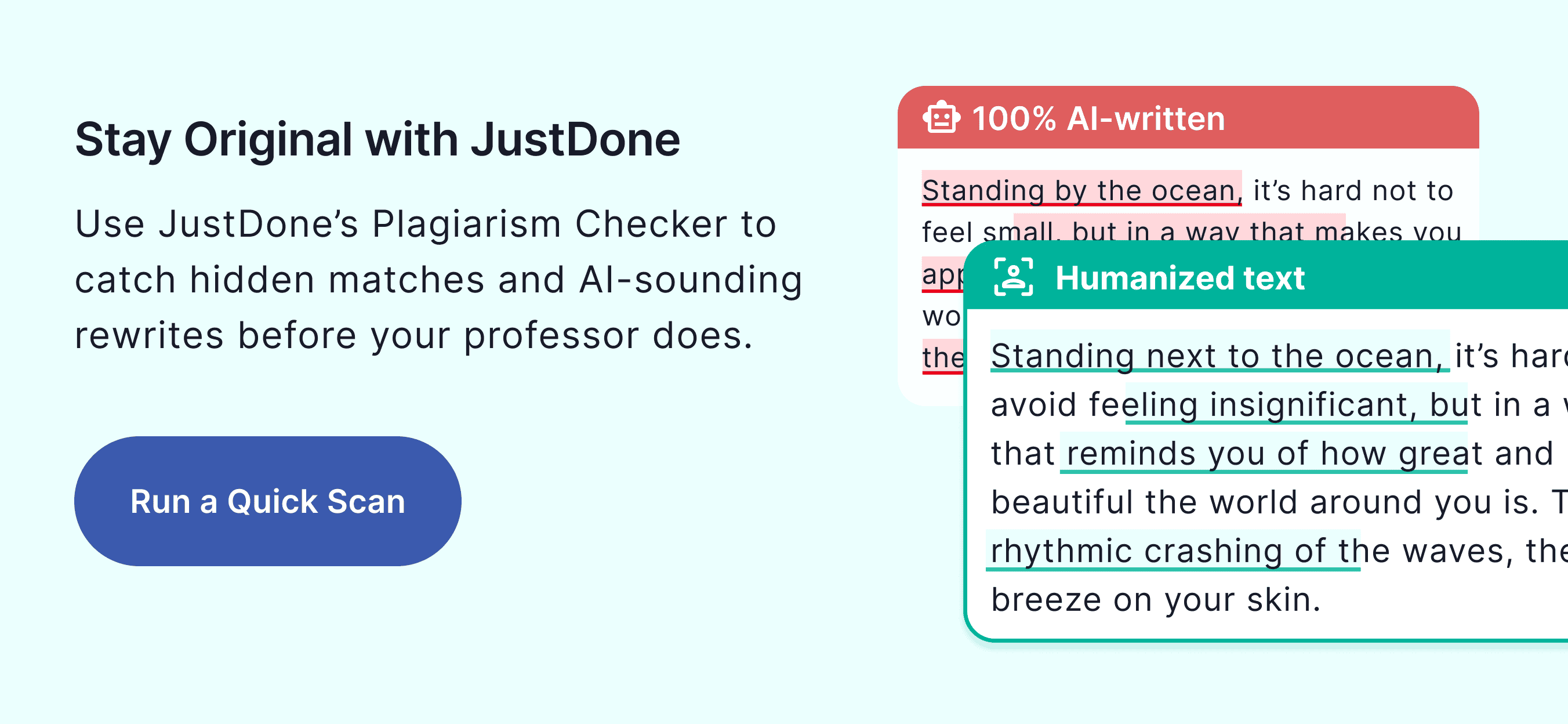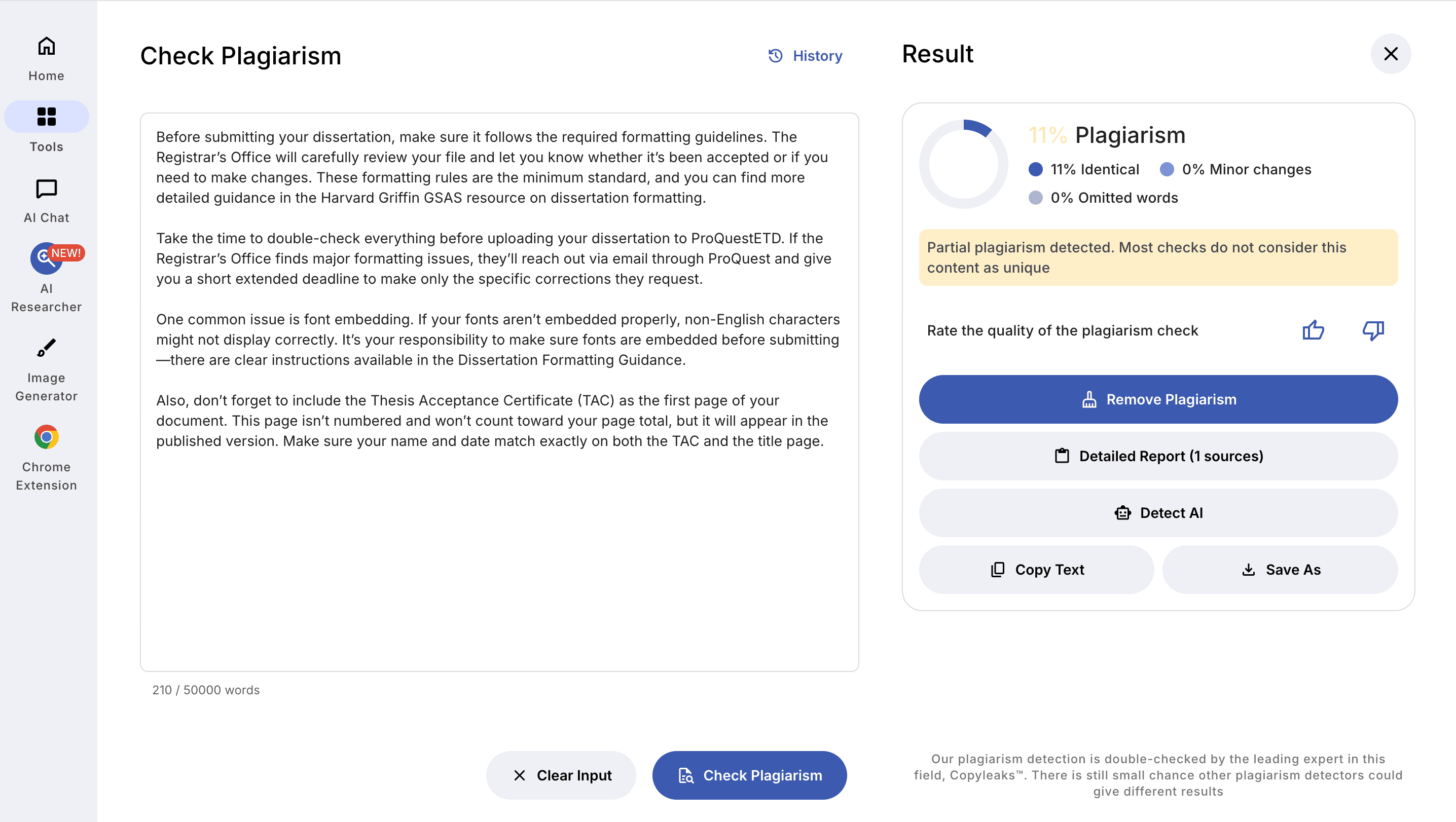There’s a reason your professors won’t stop nagging you about plagiarism, but don’t we all feel like it’s just another rule that’s part of the long list of “don’ts” in academia? The first time I got to college, I thought that plagiarism was “bad,” but I didn’t really know why. It wasn’t until I began writing more seriously, took part in several group projects, and got into plagiarism checkers work, that it hit home: plagiarism isn’t simply a technical problem. In essence, it’s a moral one.
So today, we’re getting into the big question: why do we think about plagiarism as a breach of ethics, and why is it such a big deal in school, in journalism, and in publishing? Let’s discuss what is actually on the line when we cheat, and how originality covers more territory than just our grades.

Why Is Plagiarism Unethical?
At its most basic level, plagiarism is unethical because it is a form of cheating. You are passing off a piece of work that does not belong to you as your own, whether it’s a sentence, a paragraph, an entire essay, or even an idea you lifted from someone else’s website. And that violates a fundamental tenet in every industry: Give credit where credit is due.
Think about this: someone posts your art, blog article, or song lyrics without mentioning you or crediting you as the artist. Feels wrong, right? That’s because it is wrong. Even in a purely educational setting, plagiarism disrespects the author and misuses the audience.
If you’re still not clear on what plagiarism is and how to detect it, you’re not alone. First, I recommend to learn the definition, because that’s the first step to understanding why plagiarism is a problem.
Why Is Plagiarism a Violation of Ethics in School?
So let’s start with the world most of us are in today: school. In education, plagiarism undermines the teaching-learning process. Plagiarism starts aty the moment when someone starts copying instead of reflecting critically and saying what they think and understand. In fact, plagiarism means you’re not actually learning. Worse, you’re misrepresenting what you know.
Academic integrity is about showing that you did the work. It’s about trust between students and professors. That trust disappears when plagiarism shows up.
Plus, it’s unfair. One student spends hours researching and writing, another copies a few lines off Reddit, and they both get the same grade finally? As for me, that’s a serious problem.
This is the real reason why schools treat plagiarism as an ethical violation. It’s not just about citations; it’s about honesty and effort.
If you're wondering whether your similarity score is acceptable, this breakdown on what percentage of plagiarism is acceptable is super helpful. Because sometimes, you need to know not only the number, but also what’s behind it.
Why Is Plagiarism Wrong in Journalism?
Now think about the news. Journalists are expected to report the truth, credit their sources, and be transparent about where information comes from. Why is plagiarism wrong in journalism? Because it damages credibility.
When a reporter lifts content from another article without credit, readers are misled. It creates a false image of authority. Even worse, it can spread misinformation if the original context is lost.
In an era where trust in media is already fragile, plagiarism can destroy a journalist’s reputation and the reputation of the publication.
Ethical journalism relies on being accurate and honest about where facts come from. That’s non-negotiable.
Plagiarism and Publishing: More Than Just Words
If you’re into creative writing, blogging, or content creation, here’s something to remember: your ideas are your intellectual property. And so are everyone else’s.
Plagiarizing in publishing, whether it’s a stolen paragraph in a novel or a copied how-to blog post, undermines the creative process. Writers, authors, and creators put hours into their work. Taking it without credit is like walking into a gallery, grabbing a painting, and signing your name at the bottom.
In many cases, it’s not just unethical, it’s simply illegal.
And in a world where AI can generate content in seconds, protecting originality matters more than ever. That’s why using tools like the JustDone Plagiarism Checker is so important. It helps you avoid trouble and make sure your work is truly your own.
What Makes Plagiarism an Ethical Violation?
To really answer why plagiarism is a violation of ethics, let’s break it down:
| Ethical Principle | How Plagiarism Violates It |
|---|---|
| Honesty | Claims someone else's work as your own |
| Fairness | Gives plagiarizers an advantage over peers |
| Respect | Disrepects the original creator's effort |
| Responsibility | Avoids the work of real learning and thinking |
| Trust | Breaks trust between student and teacher |
Plagiarism is wrong because it cuts corners at the expense of others, whether it’s your classmate, a journalist, or a writer you’ve never met.
Why Originality Still Matters
It’s easy to get caught up in meeting deadlines, especially when you're juggling essays, part-time work, and a social life. But here’s what I’ve learned: writing your own thoughts, even if they’re imperfect, will always take you further than copying someone else’s perfect sentence.
Originality doesn’t mean being a genius, but it means being real. Even if your first draft is messy, it’s yours. And that’s what teachers, editors, and readers are really looking for.
That’s also why I run my papers through Plagiarism Checker as a must. This tool helps me catch mistakes and make sure I’ve represented myself honestly.

Final Thoughts: Integrity Is Part of the Process
So, why is plagiarism a violation of ethics? Because writing, learning, and creating are built on trust. When we pass off someone else’s ideas as our own, we break that trust, not just with others, but with ourselves.
Whether you’re writing a class paper, a blog post, or even a social media caption, remember that your words carry value. And so do the words you borrow.
Respecting that value by crediting sources, thinking critically, and staying original is how we build real integrity in what we do.
Plagiarism might be easy, but it’s never worth it. Your voice, even with its flaws, is always more powerful than someone else’s perfect sentence.